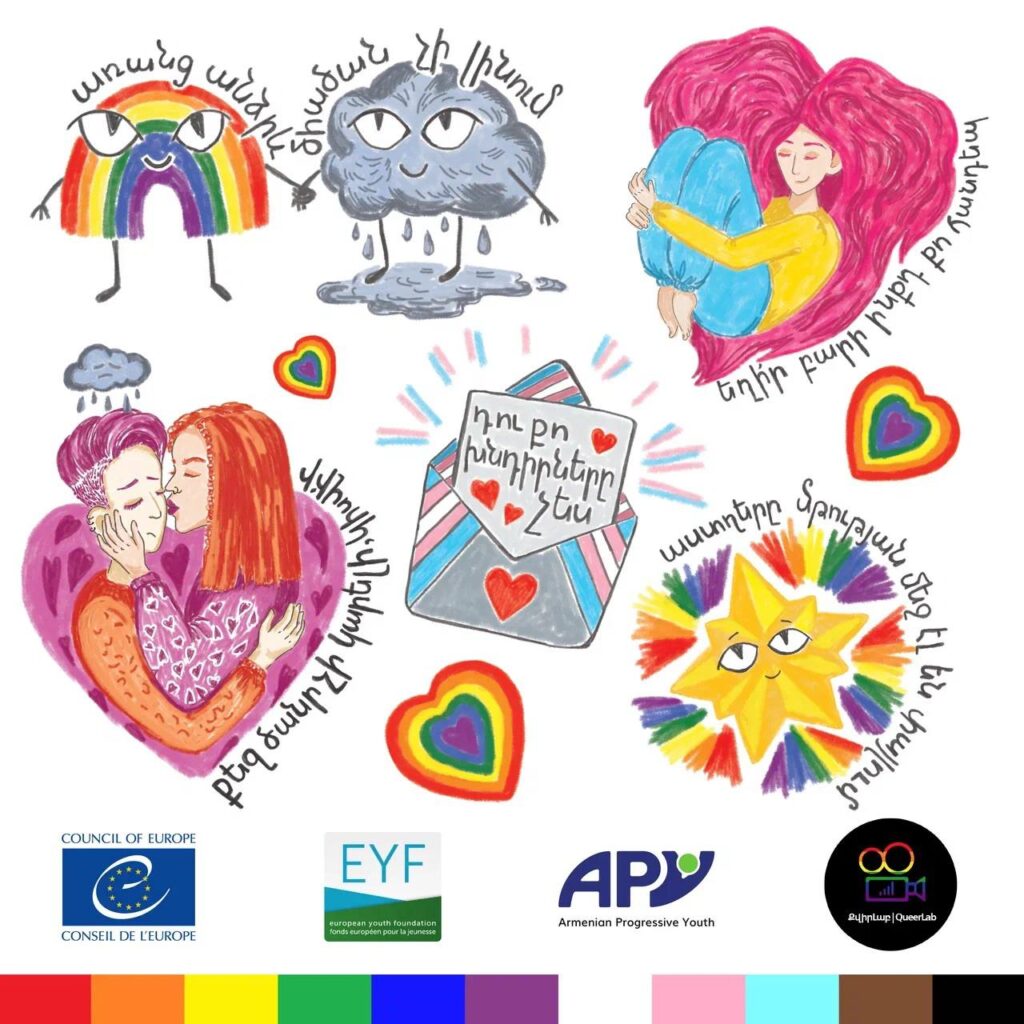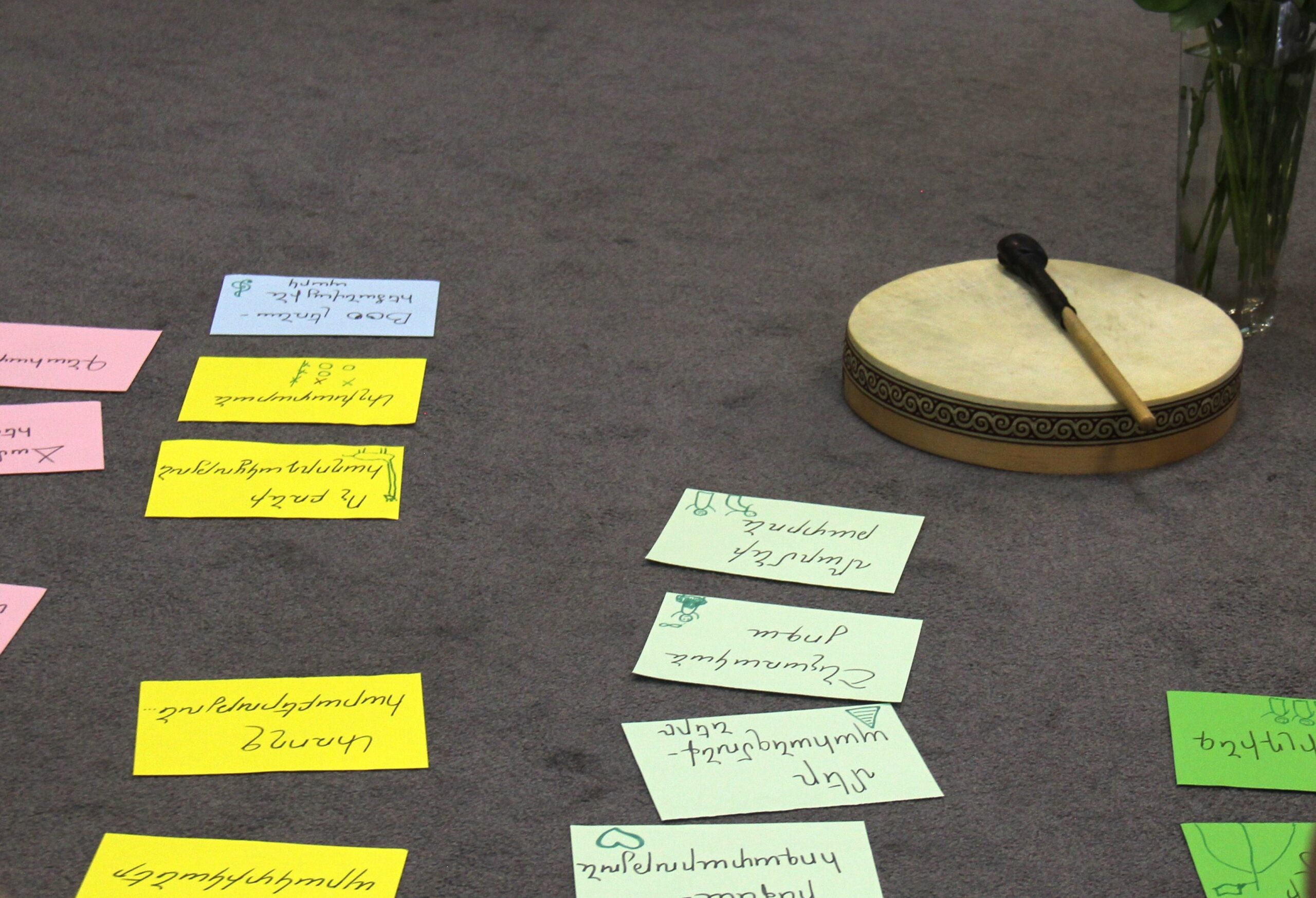
Rainbow Resilience
- Posted In : Gender Equality , News
- 0 : comment
From April through this October, Armenian Progressive Youth NGO, in partnership with the local youth initiative Queerlab Armenia and with financial support from the European Youth Foundation of the Council of Europe, launched the “Rainbow Resilience: Fostering Mental Health of LGBTIQ+ Youth through Non-Formal Education“ – a first-of-its-kind project in the organization’s youth work journey.
The project aims to create a supportive, inclusive, and safer space for LGBTIQ+ (an acronym for persons who identify as lesbian, gay, bisexual, trans, intersex or queer) young people across Yerevan and 10 regions of Armenia, promoting their physical, mental, and emotional well-being. It also seeks to foster meaningful connections and strengthen community resilience.
At its core, Rainbow Resilience focuses on advancing LGBTIQ+ inclusion in youth work and non-formal education throughout Armenia.
The first phase of the project featured the successful Rainbow Resilience Queer Summer Camp, held from July 12 to 17 in the bright, sunny city of Vanadzor in the Lori region. This enriching gathering united 25 young queer community members, youth workers, and activists, offering a range of activities designed to promote mental and emotional well-being.

The program featured a diverse range of activities, including mindfulness practices, yoga, meditation, and relaxation exercises. We also explored practical tools to support the mental health of LGBTIQ+ youth, emphasizing the essential role we play as activists, youth workers, and educators in promoting mental well-being within our communities.
The camp welcomed both newcomers and familiar faces from our past activities. Our time together was dedicated to fostering self-care and building resilience through practices designed to manage daily stresses and the growing uncertainties of the future.
Following the camp, participants have begun transforming their ideas into action through various follow-up initiatives. These include queer yoga and meditation group sessions, peer-to-peer support groups, and the creation of a sticker set featuring messages on mental health. Some are also in the process of developing a mental health awareness campaign, while others are contributing to the creation of a Mental Health Toolkit, which will be released soon.
We decided to highlight some of the testimonies of participants who openly shared their experiences and key takeaways from the camp. Their stories aim to inspire others to join our upcoming camps this winter and next summer.
Here’s what they had to say:
Ruben, a youth worker from Ejmiatsin, Armavir region
Being part of the self-care camp was a truly valuable experience for me as a youth worker. It deepened my understanding of mental health and provided me with important tools for working mindfully with the queer community. Even as a queer person myself, I realized there was so much I didn’t fully grasp about the challenges that many queer people face in Armenia. This camp has given me the knowledge and skills I need to better work with queer people moving forward.
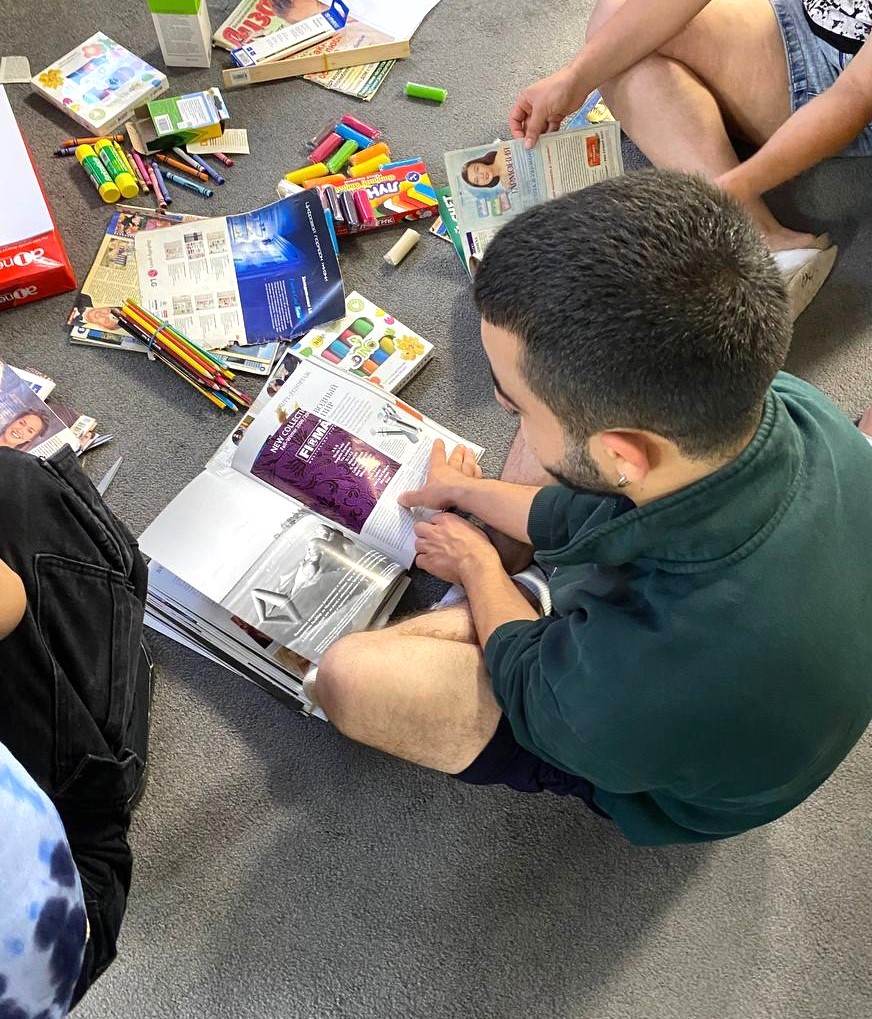
Anush, a social worker, Sexual Assault Crisis Center NGO from Sevan, Gegharkunik
Mental health is a fundamental aspect of our sense of peace. Queer individuals living in patriarchal, traditional, and closed societies like Armenian society face numerous obstacles, including fear, insecurity, anxiety, and a high risk of abandonment and rejection. These challenges contribute to significant mental health burdens. In such circumstances, the role of helping professionals, particularly social workers and psychologists, becomes crucial, especially when they employ sensitive approaches.
Social work is a professional practice focused on helping individuals in risky situations navigate difficult life challenges through professional support. It provides them with the space to be vulnerable, to grieve their losses, to allow themselves to “be sad and do nothing,” and then, together, to rise and move forward. This professional support is often vital in the lives of queer people.
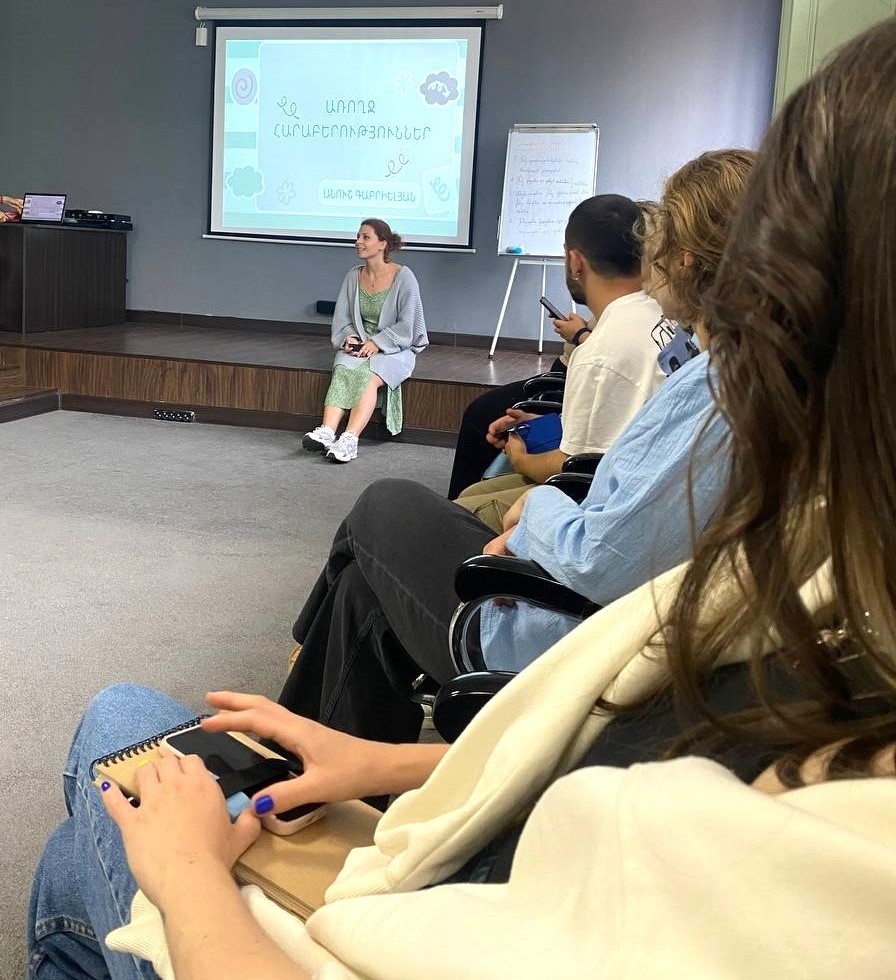
Siranush, a project participant from Yerevan
During the camp, I learned anti-stress exercises, and gained valuable insights during the Healthy Relationships seminar, which helped me re-evaluate the importance of mutual support. The art therapy session impressed me the most. It was about connecting with oneself, understanding self-perception, and embracing self-love. I’m excited to continue exploring it on my own and would love to experience it again.
Such camps as this one offer the opportunity to connect with new and diverse people, explore new tools, and learn to take better care of yourself in a holistic way. You listen to different opinions, and decide whether you agree or not.
Nare, a project participant, painter from Yerevan
Self care is a safe space. This is why APY gathered all of us and took us to Vanadzor. The trip was accessible to everyone so even if you’re struggling financially or didn’t have a safe bedroom at home you could still come and get away from everything. The Vanadzor trip with this group was my longest summer vacation where I met new friends and people I admire. Our facilitators generously shared techniques for managing stress and tapping into your body’s resources.
Emma, a stand-up artist from Gavar, Gegharkunik
Self-care is a topic that we often overlook or push to the background. As we realized during the camp, it’s something we did not learn from our parents. Therefore, it’s essential to explore different self-care practices through camps like this one.
I really enjoyed the body theater and yoga sessions. Overall, the camp was well-organized and very productive.
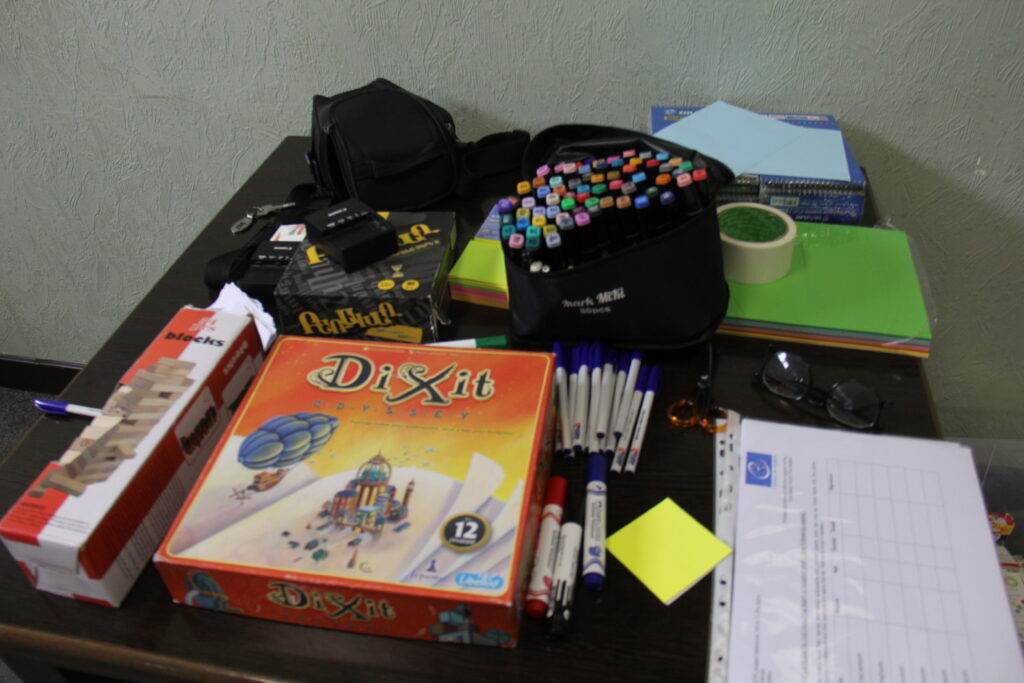
Ghazar, a youth worker from Yerevan
During those summer days, I experienced one of my most memorable camps in the heart of Vanadzor city. The camp focused on self-care, where we shared our routines and experiences on how we care for ourselves and explored various techniques. In the relaxing atmosphere, we got to know each other better, cared for one another, and released our thoughts and worries, becoming more open to new things. Topics like nonviolent communication, yoga, and body therapy made me consider how to incorporate them into my daily work as a youth worker.
In Armenia, there are very few safe and welcoming spaces for queer people or allies, so this camp was a rare opportunity for me to connect, work, and relax with others from my community who are also actively involved in the youth sector or activism in general.
Araqs, a project participant
I am very impressed with the camp. Since self-care, whether physical or psychological, is very important to me, I was thrilled that this was the camp’s theme. It was a wonderful opportunity to meet new people, share experiences, and finally relieve some of the tension within myself and just breathe. The camp served its purpose, which is exactly why I came.
“Many youth organizations hesitate to openly embrace or include queer youth, often avoiding projects or events centered around LGBTIQ+ inclusion. This mindset needs to change. It’s crucial for youth workers in Armenia to receive training and be prepared to support and work with queer youth, fostering an inclusive environment for all”, says Nelly, the Educational Coordinator of the project.
